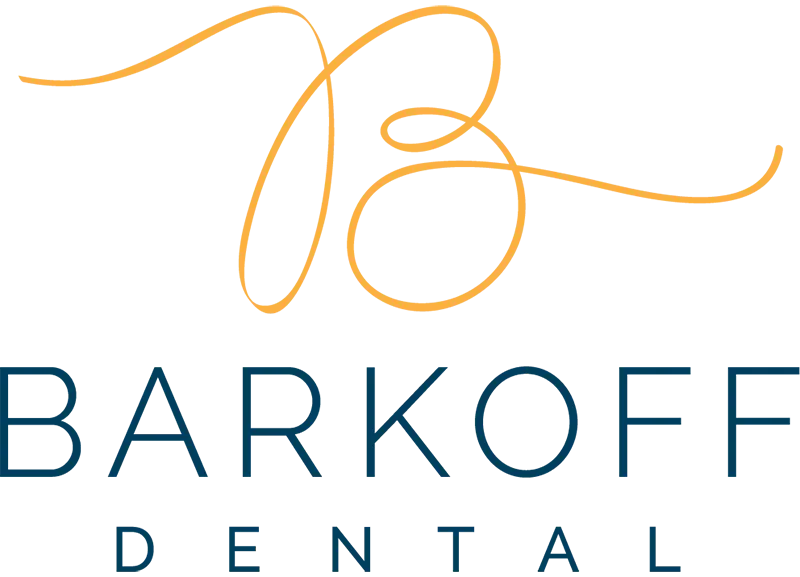General Dentistry in Syosset, NY
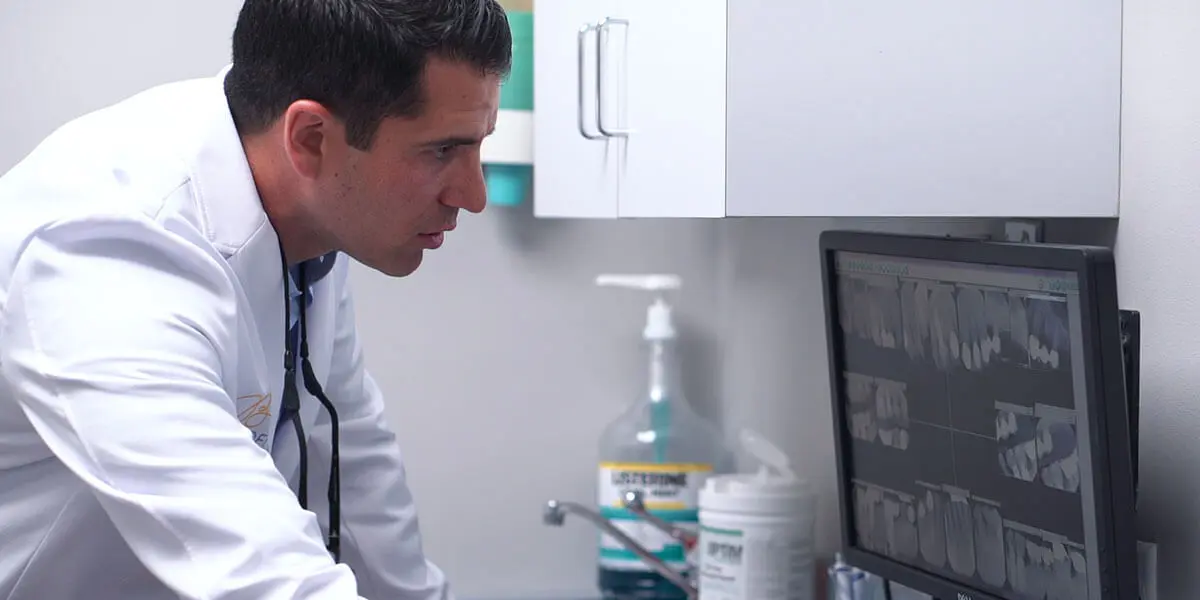
Barkoff Dental provides general dentistry services in Syosset, New York. Call 516-921-1133 or contact us today to learn more and schedule an appointment.
What is General Dentistry?
General dentistry is the blanket term for the basic dental services offered by dental practices. Teeth cleanings, oral exams, fillings, root canals, and extractions are all examples of general dentistry. The primary purpose of general dentistry is preventative, to maintain healthy teeth and gums.
Benefits of General Dentistry
General dentistry services provide a variety of benefits:
- Maintain dental health. The goal of dentistry is to maintain the health of your teeth so that they remain in your mouth for your lifetime.
- Restore damaged teeth. When cavities form or infections occur in teeth, general dentistry services can restore the health of your teeth.
- Treat and prevent gum disease. Healthy teeth lead to healthy gums. General dentistry removes plaque from the teeth that could cause gum disease.
- Early detection of oral health concerns. Oral exams are part of your routine dental appointments that should be scheduled every 6 months. Early detection of issues or abnormalities leads to better outcomes for treatment.
- Mostly covered by dental insurance. If you have dental insurance, it will most likely cover general dentistry services, at least partially.
Services Offered
We provide the following general dentistry services:
Comprehensive Evaluation / Oral Examination
An oral examination is a visual inspection of the mouth, head, and neck, performed to detect abnormalities. Radiographs allow for a more complete examination, helping the doctor to detect cavities, problems in existing dental restorations, gum and bone recession or other abnormal conditions within the mouth, head and neck area.
Cleaning
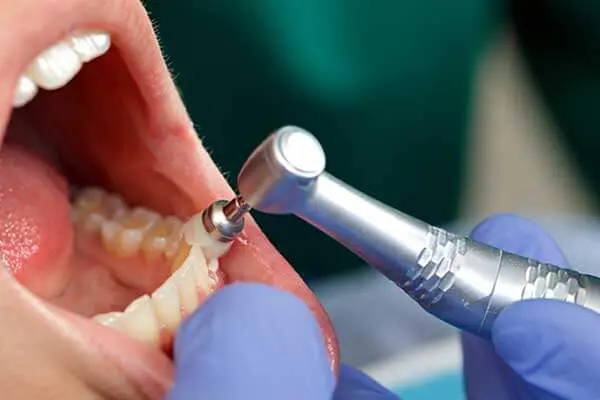
A dental cleaning, also known as an oral prophylaxis, is the removal of dental plaque and tartar (calculus) from the teeth. Specialized instruments are used to gently remove these deposits without harming the teeth. First, an ultrasonic device that emits vibrations and is cooled by water is used to loosen larger pieces of tartar. Next, hand tools are used to manually remove smaller deposits and smooth the tooth surfaces. Once all the tooth surfaces have been cleaned of tartar and plaque, the teeth are polished.
Custom Mouth Guards
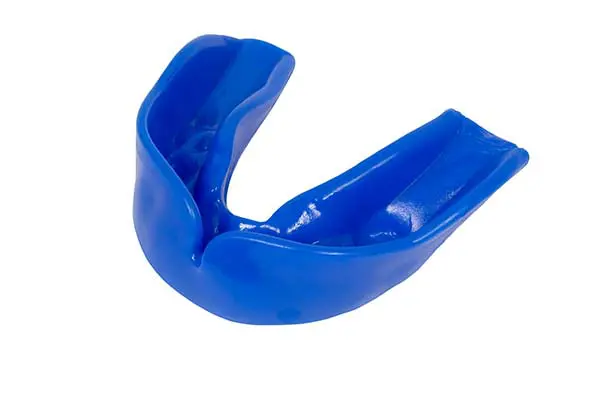
Many sports require athletes to use a mouth guard to protect their teeth while practicing and playing. Frequently used in contact sports, the mouth guard covers the gums and teeth to provide protection for lips, gums, teeth, and arches. A properly fitted mouth guard can reduce the severity of dental injuries.
Scaling and Root Planing
Scaling and root planing is a non-surgical procedure used to treat gum disease. During the scaling process, specialized dental instruments are used to remove dental plaque and calculus from beneath the gums. Planing is the procedure used to smooth the tooth roots after the scaling process. Root planing helps the gums heal and reattach themselves to a cleaner and smoother root surface.
Root Canal Treatment
Root canals are most often necessary when decay has reached the nerve of the tooth or the tooth has become infected. When root canal therapy is performed, infected or inflamed pulp is removed from the tooth chamber. The inside of the tooth is then cleaned and disinfected before being filled and sealed to limit the possibility of future infection. Soon after the root canal is performed, the tooth is restored with a dental crown or filling to protect the tooth and restore normal tooth function.
Oral Cancer Screening
Our holistic approach to dental care includes a thorough oral cancer screening as part of your regular dental exam. Like many types of cancer, oral cancer can be easily treated in its early stages, but can become life-threatening if not diagnosed and treated as soon as possible.
Extractions
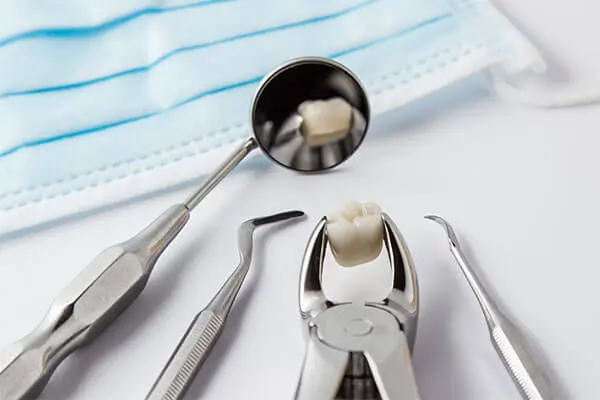
A tooth that can not be saved with restorative procedures may need to be removed. Before removal of the tooth, the area will be numbed with anesthesia. The tooth is loosened from the jawbone and surrounding ligaments and tissues with a gentle rocking motion. Once it is loose, it is gently removed. Stitches may be necessary after the removal of a tooth.
Why Choose Barkoff Dental?
General dentistry services are easy to come by, but Barkoff Dental is different. With our modern approach to dentistry and use of technology allows us to provide better service to our patients. Your comfort is our top priority, which is why we offer sedation options to make dental procedures relaxing and stress free. We strive to provide the level of care that can help you maintain your dental and oral health for a lifetime.
Frequently Asked Questions
What causes gum disease?
Gum disease is a bacterial infection of the gum tissue. It is caused by plaque and calculus (hardened plaque) that form on the teeth and below the gum line. The bacteria contained in plaque can infect the gums, causing inflammation and bleeding.
How often should I have my teeth cleaned?
The American Dental Association recommends having your teeth professionally cleaned every 6 months along with an oral exam. This time frame is generally effective for removing plaque before it hardens and causes gum disease or tooth decay.
Why is an oral exam important?
Having an oral exam every 6 months allows your dentist to thoroughly inspect the soft tissues of your mouth, throat, jaw, and neck. If any abnormalities are found, such as warning signs of oral cancer, the necessary steps can be taken to provide further treatment if needed. Early detection greatly improves the chance of a positive outcome.
Does dental insurance cover general dentistry?
Dental insurance typically covers most general dentistry procedures, at least partially. The best way to determine what is covered by your plan is to contact your insurance provider.
To learn more, call 516-921-1133 or contact us today to schedule an appointment.
